
Shocking Secret Revealed: Erase Facial Hair Naturally with THIS Kitchen Staple!
Have you ever wished for a gentle, natural method to manage facial hair without relying on harsh chemicals, expensive salon treatments, or painful procedures? Many people today are turning to simple, natural kitchen staples as a safe, affordable, and effective alternative for achieving smoother, softer skin. If you want to care for your skin while boosting your confidence naturally, you might be surprised by the powerful ingredients already sitting in your pantry.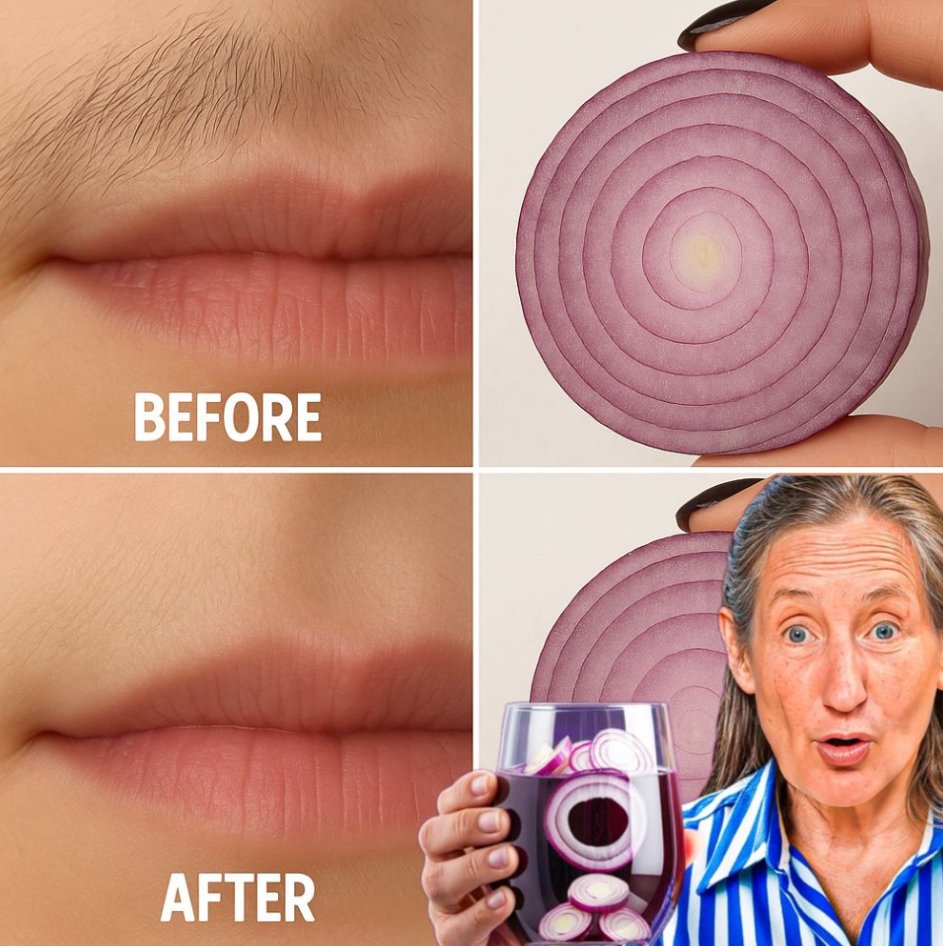
Why Natural Facial Hair Solutions Are Growing in Popularity
Facial hair is completely normal and natural, but for some individuals, it can impact self-esteem and comfort. While there is a wide range of commercial products and professional procedures available, many people prefer to avoid harsh chemicals, strong fragrances, or costly treatments that may cause skin irritation or sensitivity. This growing desire for clean, gentle beauty solutions has led more health-conscious individuals to embrace natural methods—especially those involving familiar kitchen ingredients.
Natural facial hair remedies tend to be milder on sensitive skin, easy to prepare at home, and generally much more budget-friendly than store-bought products. They also help you steer clear of synthetic additives and potential allergens, promoting a holistic approach to skin wellness.
The Power Duo: Turmeric and Chickpea Flour
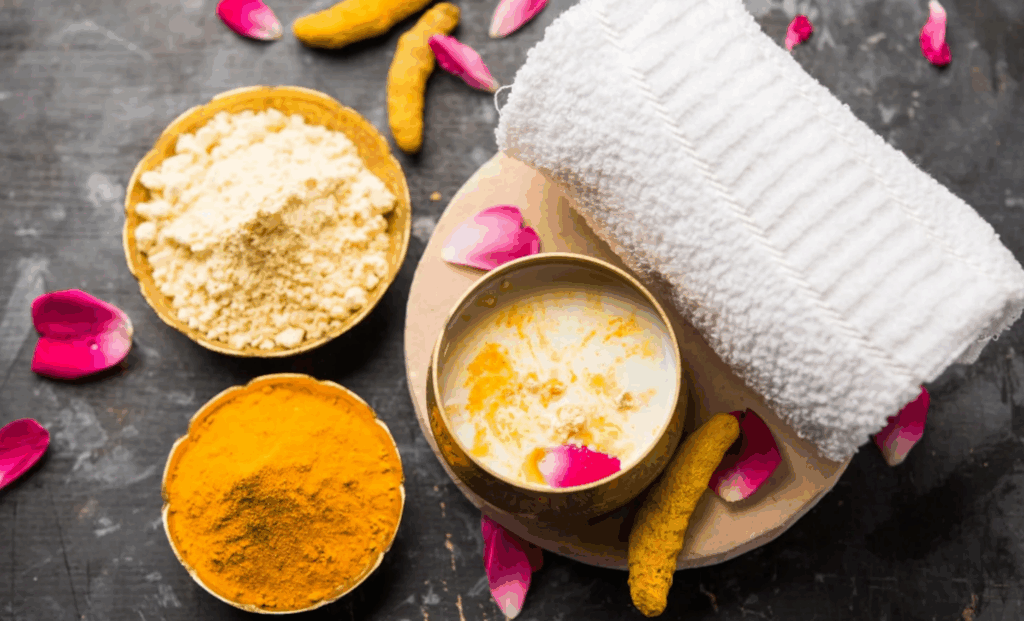
One of the most cherished natural remedies for facial hair is a simple yet effective paste made from turmeric and chickpea flour. These ingredients have a long history in traditional skincare routines across various cultures, particularly in South Asia, where plant-based beauty treatments have been passed down for generations.
Turmeric is celebrated for its anti-inflammatory, antibacterial, and skin-brightening properties. Scientific studies indicate that turmeric’s natural compounds can help soothe irritated skin and may gradually reduce the appearance of fine unwanted hair when used consistently over time. Chickpea flour works as a gentle exfoliant, effectively removing dead skin cells while loosening fine hairs from the skin’s surface without causing damage or dryness.
When combined, turmeric and chickpea flour create a smooth paste that acts as a mild facial mask. This natural remedy helps manage facial hair subtly, while simultaneously rejuvenating your skin, leaving it feeling soft, fresh, and glowing.
How to Make and Use a Natural Facial Hair Mask at Home
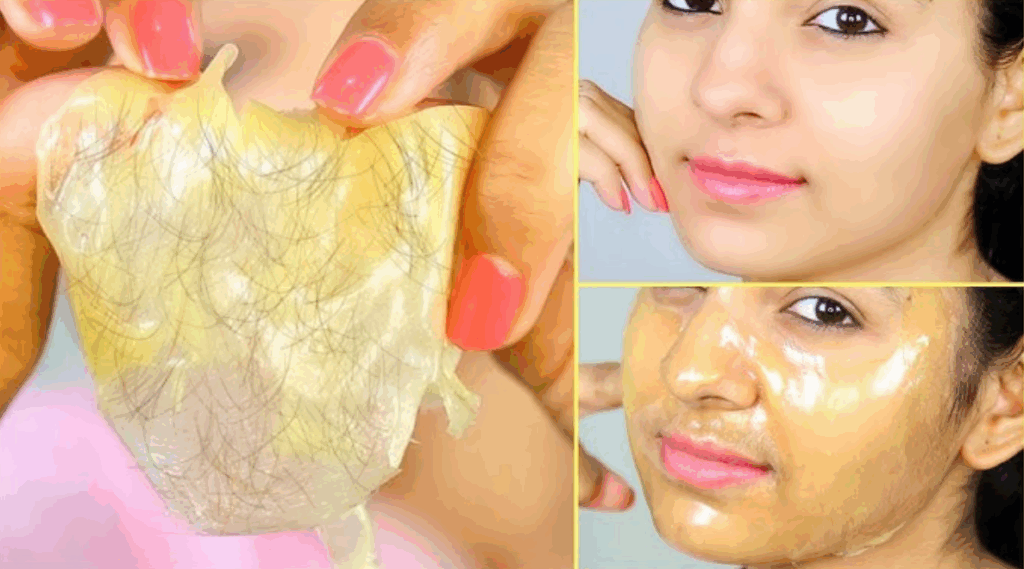
Making your own natural facial hair mask is quick, affordable, and requires just a few common ingredients:
-
Ingredients:
-
2 tablespoons chickpea flour
-
1 teaspoon turmeric powder
-
2-3 tablespoons plain yogurt or milk (adjust to achieve paste consistency)
-
Instructions:
-
Mix the chickpea flour and turmeric powder in a bowl.
-
Gradually add yogurt or milk, stirring until you form a smooth, spreadable paste.
-
Apply a thin layer evenly onto clean, dry skin, focusing on areas where fine facial hair is present.
-
Allow the mask to dry completely, which usually takes about 15-20 minutes.
-
Once dry, gently massage your face in circular motions to exfoliate and lift hair and dead skin cells.
-
Rinse thoroughly with warm water and pat your skin dry with a soft towel.
For optimal results, incorporate this mask into your skincare routine two to three times per week. Always do a patch test first to check for any allergic reactions, especially if your skin is sensitive or prone to irritation.
Extra Tips for Healthy, Radiant Skin

While natural masks can aid in managing facial hair, maintaining overall skin health is equally important for a radiant complexion. Here are some additional tips to help support your skin’s natural beauty:
-
Cleanse your face twice daily with a gentle, fragrance-free cleanser to remove impurities.
-
Use a moisturizer suited for your skin type to maintain hydration and barrier protection.
-
Protect your skin from harmful UV rays by applying a broad-spectrum sunscreen daily, even on cloudy days.
-
Maintain a balanced diet rich in antioxidants, vitamins, and minerals by eating plenty of fruits, vegetables, nuts, and whole grains.
-
Drink adequate water throughout the day to keep your skin hydrated and flush out toxins.
-
Avoid excessive touching or rubbing of your face, which can cause irritation or spread bacteria.
-
Consider using a gentle exfoliant once a week to enhance skin texture without over-stripping.
If you ever notice redness, itching, or any unusual reactions, stop using the mask immediately and consult a dermatologist for personalized guidance.
When to Consult a Professional
Natural remedies are a wonderful way to complement your skincare routine, but they may not be suitable for everyone. If you experience persistent or coarse facial hair growth, sudden changes in hair patterns, or have underlying skin conditions such as eczema or rosacea, it’s important to seek professional advice. Sometimes facial hair changes can be linked to hormonal imbalances or other medical conditions that require targeted treatment.
Final Thoughts: Embrace Gentle, Natural Beauty
Managing facial hair does not have to involve harsh chemicals, painful waxing, or costly laser treatments. With everyday kitchen staples like turmeric and chickpea flour, you can create a soothing, natural mask that promotes smooth, radiant skin. By caring for your skin gently and consistently, you can enhance your natural beauty and feel more confident in your own skin every day.
Have you tried making your own natural facial hair mask at home? Share your experience or tips in the comments below! Feel free to send this article to friends who appreciate simple, natural beauty solutions. For more wellness and skincare ideas, explore our site and discover a wealth of gentle, effective ways to care for your body and skin naturally.
Disclaimer: This article is intended for informational purposes only and should not replace professional medical advice. Always consult your healthcare provider before making any changes to your health or skincare routine.
News in the same category


Watermelon Juice with Carrot, Beetroot, and Ginger: A Refreshing, Nutrient-Packed Drink

🌿 OKRA BENEFITS – 20 Impressive Health Benefits of Okra You Need to Know!

Dwarf Mallow (Malva neglecta): The Overlooked Superplant Your Body Will Thank You For

The Powerful Natural Drink Recommended by Dr. Frank Suárez to Help Combat Cancer, Diabetes, and Fatty Liver

Leaf of Life: Unlock the Miracle Plant Growing in Your Backyard
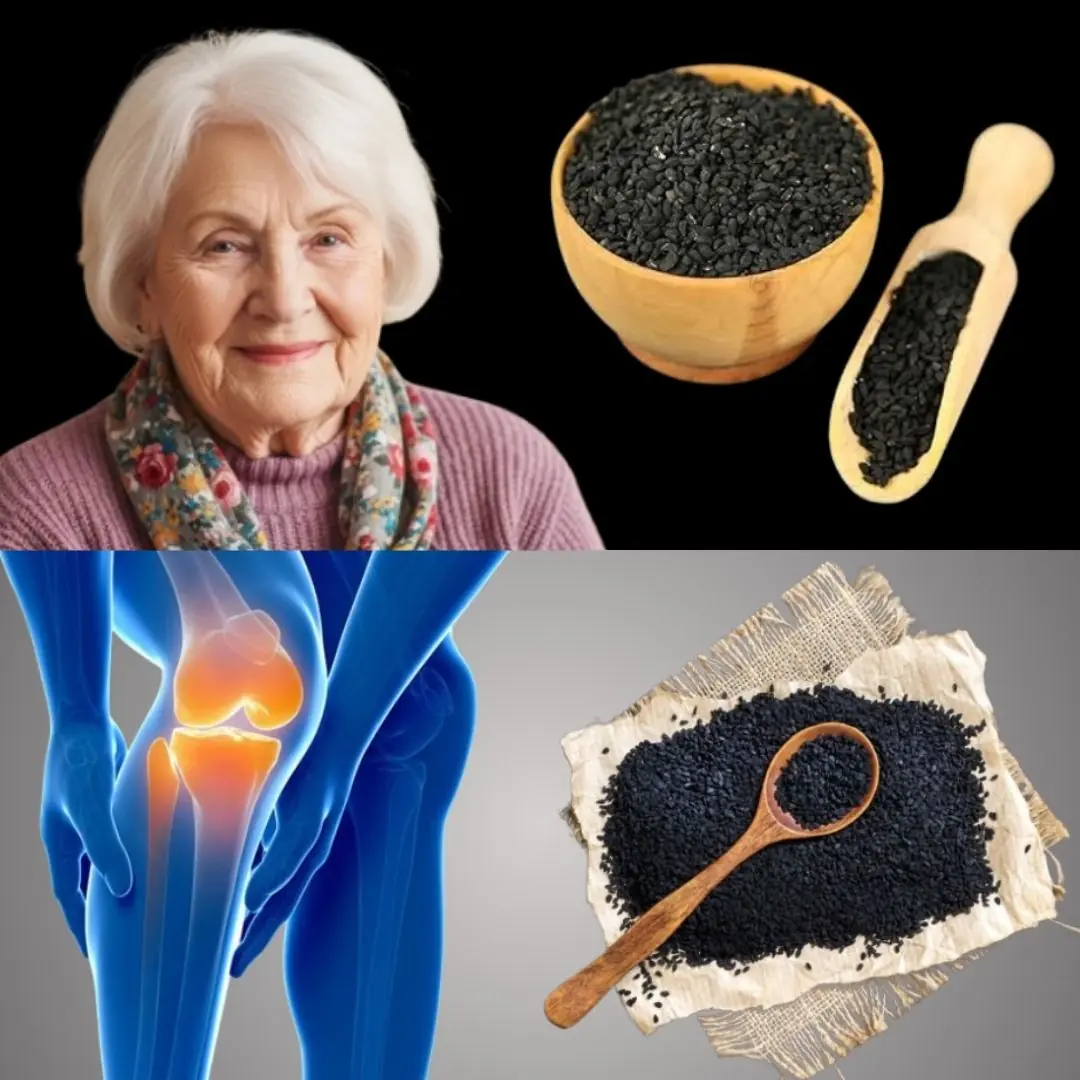
My Grandma Healed Her Joints and Now Runs Like a Young Girl – Thanks to Black Cumin Seeds!

Homemade Syrup That Clears Cough & Flu Fast — Just 3 Powerful Ingredients!

I Ate 2 Dates a Day — Here’s What Happened to My Body

The 2025 Wellness Revolution: A Drink to Transform Your Health!

Nature’s Secret Superfood: Why Purslane Is the Game-Changer Your Health Needs 🌿
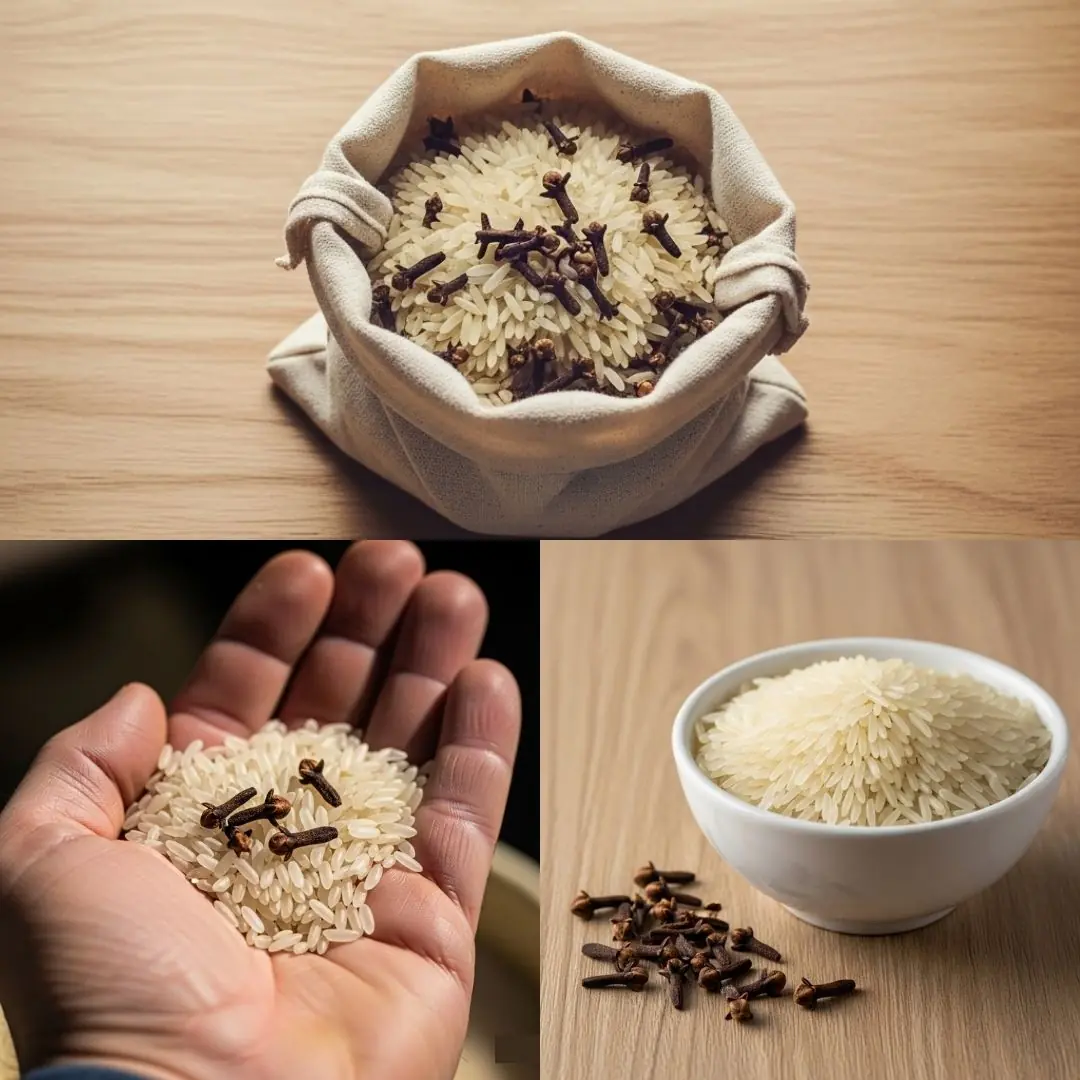
🚫 Say Goodbye to Weevils: Easy Tips to Keep Your Beans and Rice Safe

Purslane: The Humble Backyard Superfood You’ll Wish You’d Known Sooner
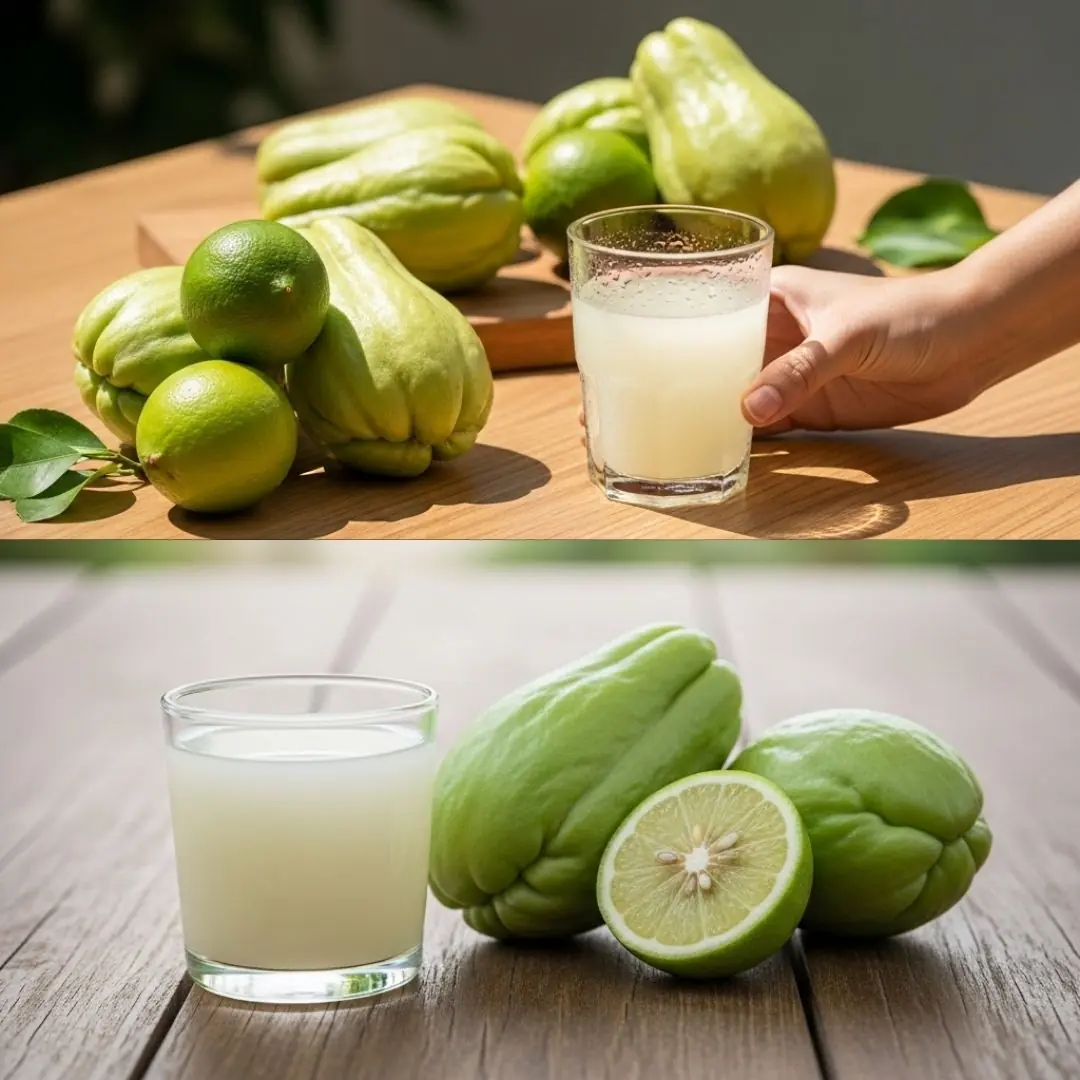
🥒🍋 Mix Chayote and Lemon — You'll Thank Me When You Discover What It's For!

The Secret Superfood Hiding in Your Backyard: Why Common Mallow Will Blow Your Mind

🍍 Why You’ll Love This Pineapple Lemon Ginger Fat Burning Juice

Kalanchoe Pinnata: The Miracle Leaf That’s Your Secret to Natural Healing

Can a Tea Really Support Heart Health? Natural Ways to Care for Your Arteries

Lemon and Apple: A Healthy Duo for Wellness and Vitality
News Post

Protect Your Home and Wallet: Unplug These 5 Appliances When You’re Done Using Them

Some People Still Think These Two Buttons Are Only For Flushing

Terrifying Study: Up to 30% of Americans Could Be Infected with Brain-Impacting Parasite

Itching in 9 Areas: A Warning Sign of Malignant Tumors, Number 7 Is the Most Common
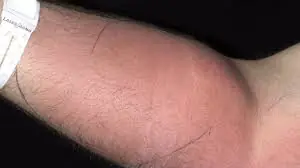
Doctor's "Deeply Concerning" Warning After Man Injects Sperm to 'Cure Back Pain'

Non-Smoker Diagnosed with Lung Cancer Shares His Only 'Silent' Symptom

The Dark Year: What Made 536 So Devastating For Civilization

Alarming Discovery: High Aluminum Levels Found in Brains with Alzheimer's, Autism, and MS

First Human Trial Launched for Stem Cell Therapy to Reverse Spinal Cord Injuries

From Despair to Hope: Joe Tippens' Incredible Cancer Recovery Story with Fenbendazole

Elon Musk Claims He’s A 3,000-Year-Old Time-Traveling Alien

The Volume Buttons on Your iPhone Have Countless Hidden Features

10 Safest Countries To Be In If World War 3 Breaks Out

2050 Climate Crisis Death Toll Could Be Catastrophic, Researchers Warn

This Image Has People Perplexed. Can You Solve It?

What causes the green ring around hard-boiled eggs?

Ditch Bad Vision for Good! Carrots Can Boost Your Eyesight, Hearing, Memory & Immunity

Watermelon Juice with Carrot, Beetroot, and Ginger: A Refreshing, Nutrient-Packed Drink
